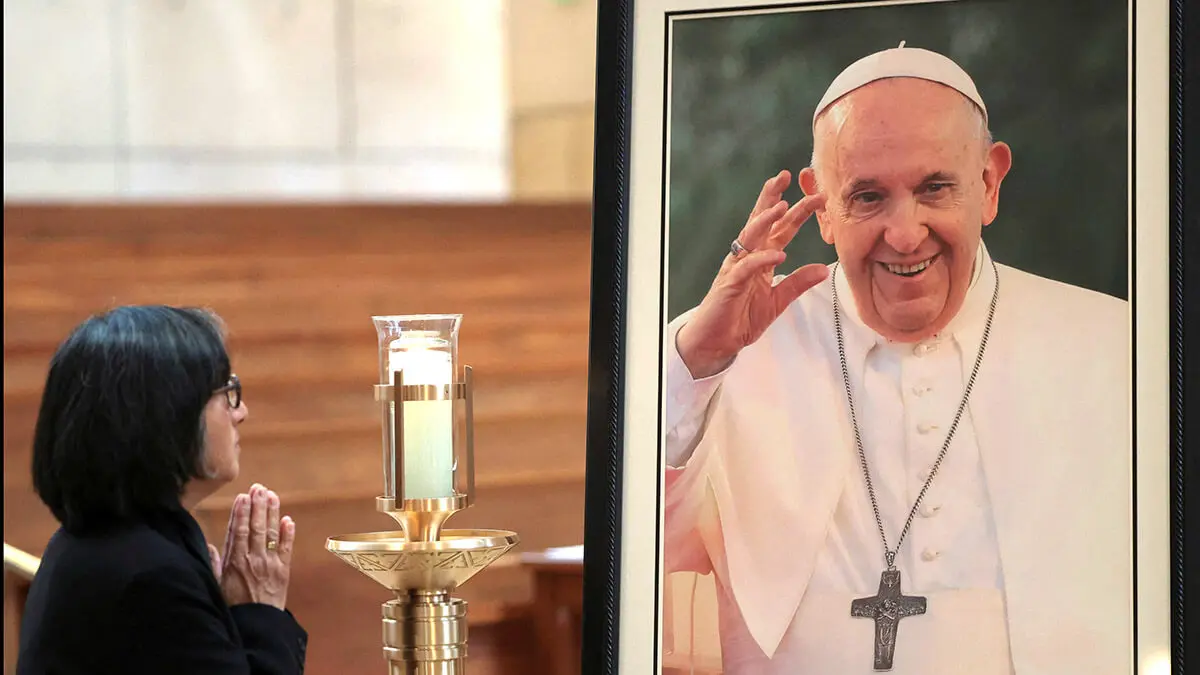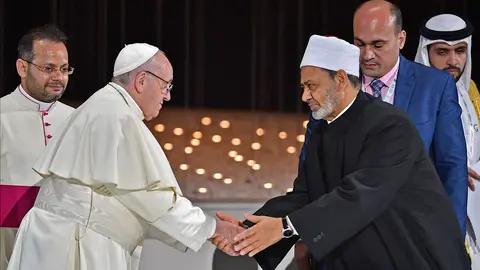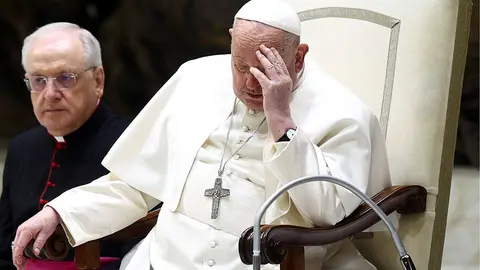Through the Spiral from Europe

Since last Thursday, I have been in Rome and the Vatican, and as a journalist I have been able to experience the exciting event of a pope's funeral.
The death of Pope Francis, now Franciscus for eternity, will open a period of transition between an austere and progressive papacy and another that will very likely seek a greater balance between conservative theological thinking and what reality shows us with its overwhelming transformations: life itself, with its dramas and contradictions, is not in the Bible, nor in any of his encyclicals.
The Argentine Jorge Mario Bergoglio saw this in its perfect dimension: the future of Catholicism rests on the manna of the millennials, Generation Z and Generation Alpha. And we middle-aged adults know very well what is happening to the emotional, human, ideological and sexual foundations of these three generations.
Throughout his twelve years as Pope, Francis devoted much of his time and energy to reaching out to young people by speaking to them in their own language: from abortion and LGTBIQ couples to artificial intelligence.
These days, having experienced his funeral first-hand and witnessed the arrival in Rome of hundreds of thousands of Catholic faithful and devotees of Pope Francis from all over the world, I have been able to see the great affection and admiration that young Catholics feel for the legacy left by the Argentine.
Last Friday, 25 April, faced with a tsunami of fervent people, both the Vatican and the Italian government decided to close all access points from 5 p.m. onwards due to the significant risk of a crowd gathering in a small area.
I would like to express my admiration for the deployment of the Italian security forces, reinforced at some points by the army, who ensured that the long day passed without incident. The carabinieri and the army reinforced surveillance, street by street, and there were police officers at every entrance to the underground station and inside the platforms.
It seems to me that, from now on, the legend of Francis will begin. There are those who, during his lifetime, always placed him below the legacy of Pope John Paul II with those odious comparisons, but the two have nothing to do with each other: Pope John Paul II had a long papacy of 27 years in an era marked by the Cold War and the ideological struggle between capitalism and communism. The Polish pope's influence in bringing down the wall of the USSR was not in vain.
With Pope Francis, the present has been no less challenging in a changing world with terrorist attacks, pandemics, invasions, cyber threats and a youth at the mercy of the new God: The Internet and the ocean of lies and post-truths that circulate there.
He knew how to interpret the signs of the times, to read them with wisdom, that neighbourhood priest who went from door to door calling to gather a congregation that would allow him to create a dynamic of spiritual feedback that would enlighten them to be better people. Hope and faith are both amazingly effective placebos.
On a related note
I witnessed that human tsunami that first fervently sought a place on the esplanade of St. Peter's to accompany him at his funeral; and then, yesterday, Sunday, the faithful gathered to visit the Basilica of Santa Maria Maggiore to enter and see the niche where Francis lies for eternity. For hours and hours and hours, people lined up eagerly waiting to show their affection.
Bergoglio was disparaged and attacked from within the Vatican, while outside, his popularity grew so much that I am sure no one would have bet that he would be so loved, so respected and have so many followers.
It will not be easy, in this context, for someone else to come along who has neither his charisma, nor his humanity, nor his spark; nor those witticisms with which he used to win people over at first impression.
Whoever comes will be under enormous pressure and under the scrutiny of the faithful and comparisons: voting for another pontiff who is as grey as Benedict XVI would be a profoundly serious mistake.
That is why I believe there will be a period of transition between Francis and another cardinal who, in the coming years, will also demonstrate this vision of renewal. The figures for his papacy are also very positive: from 13 March 2013, when he was elected pontiff, until his death, the number of Catholics increased by 137,000; and, according to the Annuarium Statiscum Ecclesiae and the Pontifical Yearbook for 2024, there are 1.39 million people baptised as Catholics in the world. In short, he knew how to touch the people, that much is clear to me.
As I begin to write this column, it is Saturday, 26 April, and I am leaving the Vatican for the Ottaviano-San Pietro metro station. Inside the carriage, a young man who calls himself ELG Emanuel sings rap songs about the passing of a good man who cared about helping everyone: ‘If you want to know his name, I'll tell you, it's Francis, Francescus, and he's everyone's friend, and we're going to miss him.’ Without a doubt, it was twelve years of ploughing where it needed to be done.
Requiescat in pace semper.




